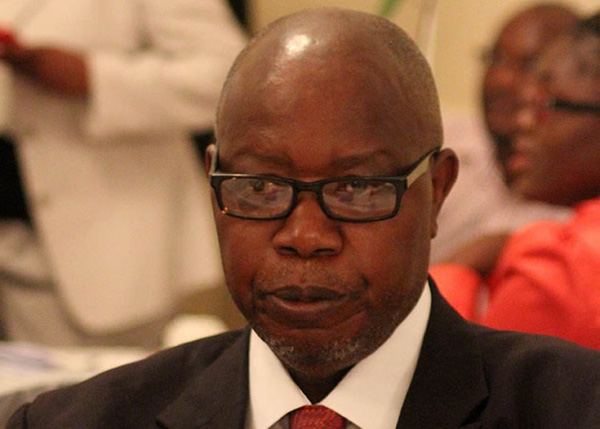
Even though Geoff Nyarota’s book, Against the Grain: Memoirs of Zimbabwean Newsmen, was originally published in 2006, it is scarcely available in Zimbabwe. It is a shame. This is a story that Zimbabwe must be reading.
Literary Forum By Bookworm
Nyarota’s book is Zimbabwean “history from a personal perspective.” He achieves this goal, for the book is about much more than himself; he analyses the heroic efforts of many to sustain civil liberties, but also shares his perceptions about the evolution of our leaders he has gotten to know so well.

The real subject is not Nyarota but Zimbabwe. Learning the outlines of Nyarota’s life is a fine crash course in the history of media in Zimbabwe. He was born in 1951, when the country was still a British colony, Rhodesia, a place where the black majority suffered overt racial discrimination. As a boy, he was captivated by languages and literature. He had a serious soft spot for Latin, which he credits for shaping his English vocabulary. He dreamed of practising journalism, but that was seen as a white man’s job. So he became a teacher instead, one of the few professions then open to black university graduates. In the 1970s, Nyarota was teaching at Regina Colei Mission when black resistance to white minority control turned into civil war. Mugabe, the leader of a major guerilla army, emerged as a national hero.
The newspapers he edited post 1980 — The Chronicle, Financial Gazette and Daily News — were often the lone voices of dissent against a government that was increasingly betraying its people. Nyarota’s journalism career parallels the decline of the country under Mugabe and how the freedom achieved under the war was soon replaced by wholesale government corruption and oppression. Unlike some, he did not just sit and watch, he spoke truth to power.
Zimpapers today is now synonymous with propaganda even though it is listed on the local stock exchange, and supposed to be neutral; it functions as a mouth piece of Zanu PF. It is unimaginable to think that The Chronicle once pulled heavy punches than The Herald as a newspaper of national record. In Against the Grain, Memoirs of Zimbabwean Newsmen, Nyarota gives a detailed account of what happened before, during and after the Willowgate expose, the pinnacle of his career. For a young black government, this created unwanted attention and scrutiny.
Shockingly, some of the people implicated in the Willowgate corruption scam are still in positions of power. They have grown fatter, ruthless and more powerful since. This is a clear indication that Mugabe has never been committed in fighting corruption. He runs his government like a Mafia. While many seem to exonerate him from personal involvement in corrupt activities, it is very curious that today his wife owns one of the biggest dairy companies in the country, Gushungo Holdings.
- Chamisa under fire over US$120K donation
- Mavhunga puts DeMbare into Chibuku quarterfinals
- Pension funds bet on Cabora Bassa oilfields
- Councils defy govt fire tender directive
Keep Reading
After being demoted by promotion at Zimpapers, Nyarota was lured to become the first black executive editor of the Financial Gazette when it was owned by a consortium led by Elias Rusike, before he was later summarily dismissed and Trevor Ncube assumed the editorship.
He explains the history of the Daily News and its troubled existence resulting in its subsequent banning. The book was written and published before the paper’s current reincarnation. Even more intriguing is the involvement of Strive Masiyiwa as a major shareholder. While Masiyiwa’s Econet story has often been celebrated, his stewardship of the Daily News coincided with the downfall of the paper when he appointed dubious characters that had public checkered pasts.
Since I have been reading Nyarota’s book, which should be required reading for media students and journalists in Zimbabwe, he is no doubt an important force in the history of our media.
Nonetheless, his love and commitment to true journalism should be an example. When I joined the Financial Gazette myself as a junior editor, I was shocked with how corrupt our journalism has become. On most days I tended to be the only one who was broke while most of my colleagues across titles knew who to call to get money from for a piece of public relations veiled as a story. Nyarota accounts well what happens to journalism and accountability when reporters become “hopelessly embedded with the government” or political factions.
I fondly remember my former boss and mentor Sunslee Chamunorwa. He would say, “mupfanha, I often tell my friends, if any of my reporters turn up with evidence you are corrupt, do not ask me to cover up for you. I am a servant of the truth.” Having audience with Mdara Chamu was a priceless experience. His tenure as editor-in-chief was a whispered subject of nostalgia in the pink building as people bemoaned the waning reputation of the paper.
He would sit busy in his office typing on his Lenovo laptop, a section of his book. On occasion, I was allowed to read excerpts. I am waiting for his book, just as I am waiting for Pascal Mukondiwa, Davison Maruziva, Edna Machirori, Tafataona Mahoso, Ncube, Bill Saidi to write their own books about their own roles in the story of Zimbabwean journalism.
Feedback: [email protected]











